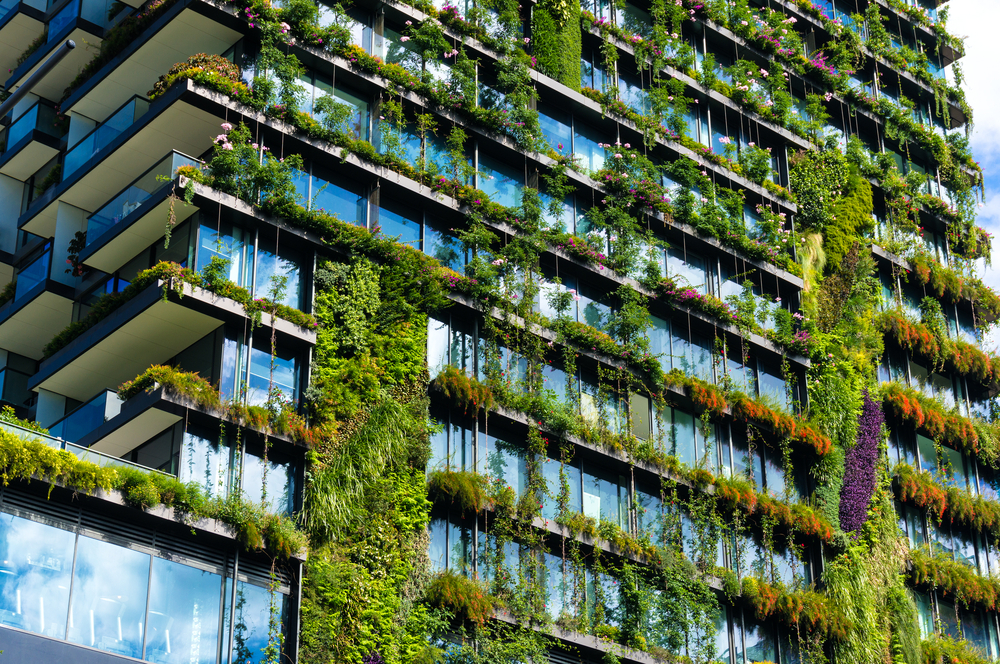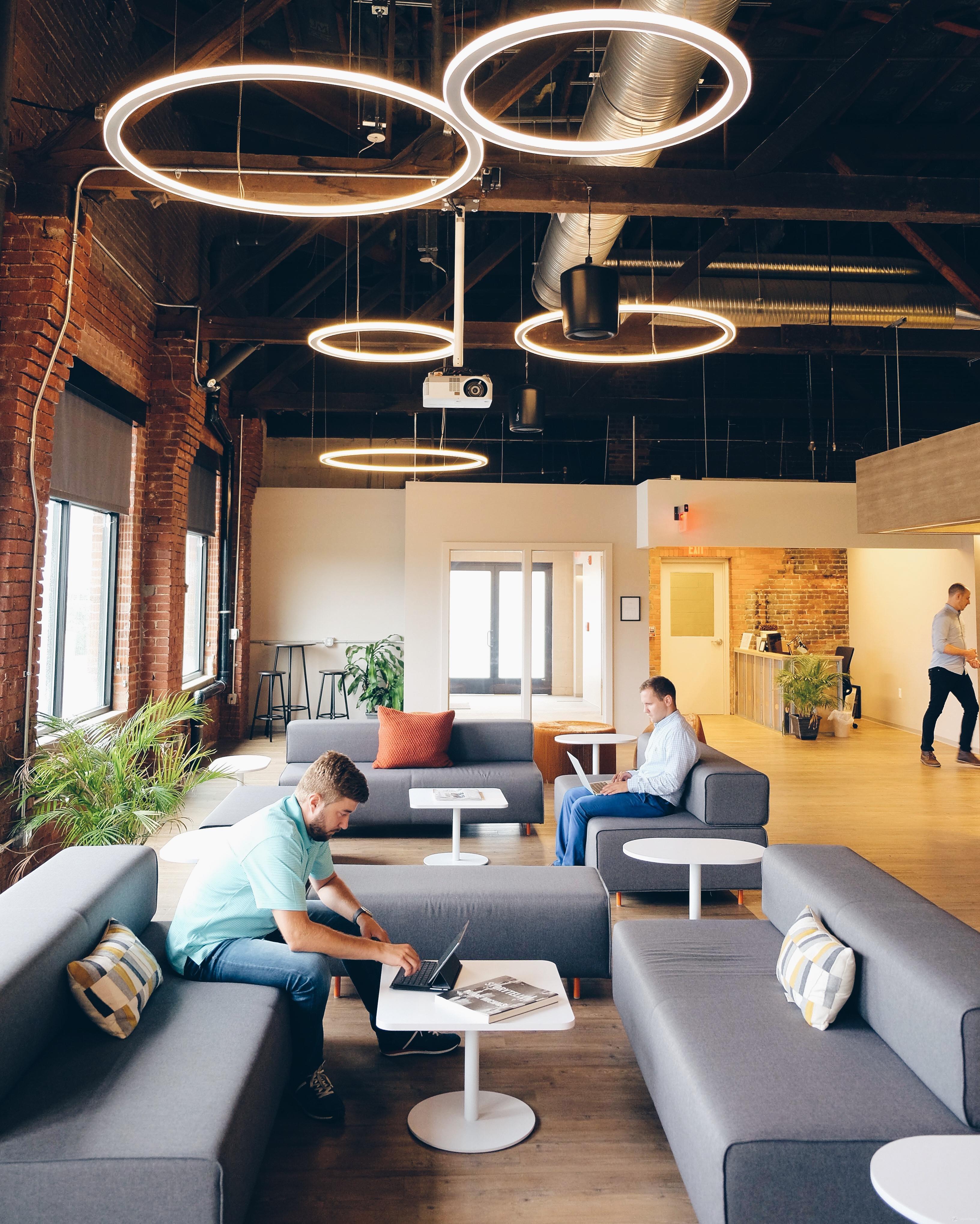
Cowork from Where it Works for the Planet
Real estate is responsible for 40% of the world’s carbon emissions. Providing true workplace choice can make a difference in our efforts to reduce greenhouse gas emissions and protect the planet.
The future of work has arrived. Here’s how to make it work for you.
Making the planet healthier is in all of our interests. Transforming the economy to benefit the planet may sound like another matter entirely, a taller order, but if the challenge is tackled day by day, decision by decision, it becomes more manageable. One of those decisions is how to work, and on that front, evidence increasingly points to a hybrid approach as a way to prioritize the needs of both people and the planet. But let’s say you’ve decided to implement a hybrid work model and are searching for a network of coworking spaces to support it. We believe the planet should have a say in that decision, too.
What do “eco-friendly” spaces look like
What does environmentally conscious or friendly coworking space even mean? If it’s powered by solar panels, does it qualify as a “green office”? A recycling system? Bike storage? Greenery galore? The short answer is, “All of the above.” Being eco-friendly simply means supporting a lifestyle that is better for the environment. If a coworking space incorporates green infrastructure of any kind – LED, solar, even water fountains in lieu of a fridge stuffed with plastic water bottles – it can accurately be labeled an environmentally conscious or friendly space.
And the world needs more of them – for a variety of reasons. After all, greener buildings are not only better for our planet, they have long-reaching employee benefits. They’re more comfortable to work in, boost productivity levels, improve our individual moods, all of which makes them better for business, as well.
Why do “eco-friendly” spaces matter
Talking about sustainability isn’t enough. More and more, people want to see values they align with put into action. This is particularly in a world where “...the majority of Generation Z (54 percent) state that they are willing to spend an incremental 10 percent or more on sustainable products, with 50 percent of Millennials saying the same.” These two groups comprise a considerable percentage of the workforce. Why wouldn’t the same sustainable logic apply to how and where they choose to work?
It does apply and that’s where remote work enters the picture. We know that remote-friendly policies work on behalf of the planet by eliminating commuting and reducing consumption levels on everything from fossil fuels to single-use plastic. But workspace itself is an important consideration, too. Coworking spaces are real estate, after all, and as the statistic at the top of this perspective makes plain, real estate is part of the problem. Finding ways to make the spaces we work in more eco-friendly is a necessary step that providers need to take, and that employers need to look for.
The workspace has a job to do. Examples of “greening the office” might include:
- Smarter technology for energy efficiency
- Effective recycling systems
- Built environment sourced from renewable construction materials
- Increased exposure to natural lighting via windows and skylights
Where to look
Promoting solutions that accelerate the decarbonization of the workplace industry has always been an integral part of the LiquidSpace mission. We do this by promoting understanding in our industry of practical, actionable and even profitable methods for workplace decarbonization. (See callout above.) We do it by providing tools to our customers and partners to implement and measure decarbonization strategies.
Not least, we do it by looking for, and supporting, pioneering coworking spaces that have made sustainability part of their offerings.
One innovative and eco-conscious coworking provider we’re proud to support on our platform is Green Spaces. The Denver Colorado-based collective’s network of space utilizes solar panels, on-site recycling and composting. Each of its spaces positively brims with plant life. Through these and other green practices, Green Spaces has created an eco-friendly network of entrepreneurs and organizations.
A social-impact initiative that works
More Green Spaces are needed. Indeed, the list of eco-friendly coworking options needs to grow, not just to keep pace with the rising demand for flexible workspace, but out of recognition that a different kind of economy isn’t just possible, it’s necessary in order to safeguard our planet’s survival.
B Corp Certification is a designation that rewards companies willing to meet high standards of social and environmental performance. Founded by an engaged group of business leaders that includes Ben and Jerry’s co-founder, Jerry Greenfield, Certified B Corporations – the “B” stands for “Benefit” – seek to create a more inclusive, equitable and regenerative economy. If you’re looking for a seal of approval, one that highlights and recognizes a company’s or organization’s efforts to take seriously its social and environmental impact, B Corp is a great place to start.
If there were a Fair Trade equivalent to business sustainability, B Corp would be it. Here are a handful of coworking spaces that qualify. The list is growing all the time!
- ARK Coworking (UK)
- Shift Workspaces (Greater Denver, CO)
- Impact Hub (UK)
- HAYVN Coworking (Darien, CT)
Conclusion
The journey to working smarter is underway, and sustainability has a big role to play. Think of it as a revolution within a revolution. First, employees voted with their feet to support remote first policies and hybrid work. Now, employers are making their voices heard. Motivated by ESG initiatives and investor pressure to do more to protect the planet, they’re picking eco-friendly venues and eco-conscious coworking space providers to support their hybrid workplace strategies. They’re discovering it’s not just the “how” of work that matters, the “where” of work matters, too. It matters to their people. It matters to their ability to recruit and retain the best people. It matters most of all if we care about working in a way that actually works for our world.
Ready to continue your journey?
There are two great ways to do it.
Ready to continue your journey?
There are two great ways to do it.






